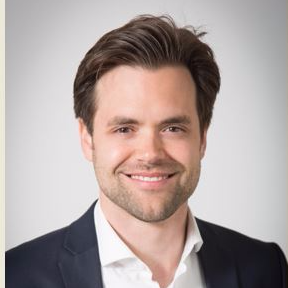Physics Teacher Education – from Professional Knowledge to Professional Performance and Beyond
A special issue of Education Sciences (ISSN 2227-7102). This special issue belongs to the section "Teacher Education".
Deadline for manuscript submissions: closed (30 April 2023) | Viewed by 18114
Special Issue Editors
Interests: science education; physics education; instructional explanations; explaining videos
Special Issues, Collections and Topics in MDPI journals
Interests: physics education; educational technology; interactive simulations; explanation in science education
Special Issues, Collections and Topics in MDPI journals
Special Issue Information
Dear Colleagues,
Over the last decade, physics teacher education has increasingly become the focus of empirical research. Traditional approaches have been evaluated and an appreciation of the need for evidence-driven approaches to physics teacher education has emerged (Milner-Bolotin, 2018). Models for physics teachers’ professional knowledge and their pedagogical content knowledge (PCK) have been developed (Carlson and Daehler, 2019; Park and Oliver, 2008). Test instruments have been developed for different aspects of professional knowledge (Fischer et al., 2014) and concepts addressing the development of knowledge and skills in academic teacher education and beyond have been evaluated (Nordine et al., 2021). The relationship between physics teachers’ knowledge and their practical skills has also been researched, with the goal of developing empirically supported arguments for the ways in which professional knowledge addressed in physics teacher education has an impact on physics teachers’ instructional quality—or even their students’ achievement (e.g., Cauet et al. 2015; Ergönenc, Neumann, and Fischer, 2016). That resulted—among other things—in the development of performance assessments for (pre-service) physics teachers (Alonzo, Berry, and Nilsson, 2019; Kulgemeyer and Riese, 2018). It is unclear, however, to what degree this research has had a practical impact on physics teacher education (Schiering, Sorge, and Neumann, 2021).
This Special Issue of Education Sciences aims to reflect current empirical research in the field of physics teacher education to identify research desiderata and to critically discuss models and empirical methods that impact the development of physics teacher education.
We invite original research on physics teacher education, in particular studies on professional knowledge and skills, including methodological papers. We also welcome theoretical papers discussing the future of physics teacher education and more practically oriented papers presenting novel approaches for developing the knowledge and skills physics teachers require.
Literature
Alonzo, A., Berry, A., & Nilsson, P. (2019). Unpacking the complexity of science teachers' PCK in action: Enacted and personal PCK. In A. Hume, R. Cooper, & A. Borowski(Eds.), Repositioning pedagogical content knowledge in teachers' knowledge for teaching science (pp. 93–116). Singapore: Springer.
Carlson, J., & Daehler, K. (2019). The refined consensus model of pedagogical content knowledge in science education. In A. Hume, R. Cooper, & A. Borowski(Eds.), Repositioning pedagogical content knowledge in teachers' knowledge for teaching science (pp. 93–116). Singapore: Springer.
Cauet, E., Liepertz, S., Kirschner, S., Borowski, A., & Fischer, H. E. (2015). Does it matter what we measure? Domain-specific professional knowledge of physics teachers. Revue Suisse des Sciences de l'Education, 37(3), 462–479.
Ergöneç, J., Neumann, K., & Fischer, H. (2014). The impact of pedagogical content knowledge on cognitive activa- tion and student learning. In H. E. Fischer, P. Labudde, K. Neumann, & J. Viiri (Eds.), Quality of instruction in physics. Comparing Finland, Germany and Switzerland (pp. 145–160). Münster, Germany: Waxmann.
Fischer, H., Neumann, K., Labudde, P., & Viiri, J. (Eds.). (2014b). Quality of instruction in physics. Comparing Finland, Germany and Switzerland. M€unster, Germany: Waxmann.
Kulgemeyer, C., & Riese, J. (2018). From professional knowledge to professional performance: The impact of CK and PCK on teaching quality in explaining situations. Journal of Research in Science Teaching, 55(10), 1393–1418.
Milner-Bolotin, M. (2018). Evidence-Based Research in STEM Teacher Education: From Theory to Practice. Frontiers in Education, 3. https://doi.org/10.3389/feduc.2018.00092
Nordine, J., Sorge, S., Delen, I., Evans, R., Juuti, K., Lavonen, J., Nilsson, P., Ropohl, M., & Stadler, M. (2021). Promoting Coherent Science Instruction through Coherent Science Teacher Education: A Model Framework for Program Design. Journal of Science Teacher Education, 0(0), 1–23. https://doi.org/10.1080/1046560X.2021.1902631
Park, S., & Oliver, J. S. (2008). Revisiting the conceptualisation of pedagogical content knowledge (PCK): PCK as a conceptual tool to understand teachers as professionals. Research in Science Education, 38(3), 261–284.
Schiering, D., Sorge, S., & Neumann, K. (2021). Hilft viel viel? Der Einfluss von Studienstrukturen auf das Professionswissen angehender Physiklehrkräfte [The more, the better? The influence of learning opportunities in physics teacher training programs]. Zeitschrift für Erziehungswissenschaft. https://doi.org/10.1007/s11618-021-01003-w
Prof. Dr. Christoph Kulgemeyer
Prof. Dr. David Geelan
Guest Editors
Manuscript Submission Information
Manuscripts should be submitted online at www.mdpi.com by registering and logging in to this website. Once you are registered, click here to go to the submission form. Manuscripts can be submitted until the deadline. All submissions that pass pre-check are peer-reviewed. Accepted papers will be published continuously in the journal (as soon as accepted) and will be listed together on the special issue website. Research articles, review articles as well as short communications are invited. For planned papers, a title and short abstract (about 100 words) can be sent to the Editorial Office for announcement on this website.
Submitted manuscripts should not have been published previously, nor be under consideration for publication elsewhere (except conference proceedings papers). All manuscripts are thoroughly refereed through a double-blind peer-review process. A guide for authors and other relevant information for submission of manuscripts is available on the Instructions for Authors page. Education Sciences is an international peer-reviewed open access monthly journal published by MDPI.
Please visit the Instructions for Authors page before submitting a manuscript. The Article Processing Charge (APC) for publication in this open access journal is 1800 CHF (Swiss Francs). Submitted papers should be well formatted and use good English. Authors may use MDPI's English editing service prior to publication or during author revisions.
Keywords
- professional knowledge
- PCK
- physics education
- teacher education






